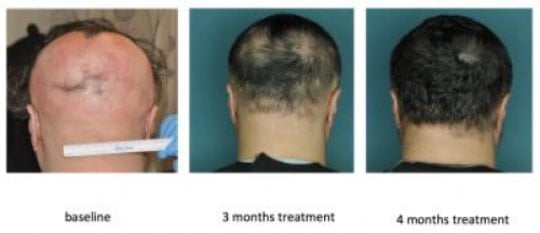
Heart attack, conceptual illustrationGetty
Vascepa, a fish-oil-derived heart drug, reduced the risk of dying from a heart attack or stroke in a major clinical trial, potentially providing a big benefit for patients and a boost to its maker, Amarin Pharmaceuticals of Bedminster, N.J., which makes no other products.
But the result comes with a major asterisk: cardiologists who reviewed the data for Forbes see a big problem with the study that could mean that it exaggerates Vascepa’s benefits: the placebo that was given in the study appears to have caused blood test changes that might have caused heart attacks, potentially exaggerating the medicine’s effectiveness. They also say they are puzzled as to how Vascepa works, because the data don’t conform to prior explanations of the medicine’s benefit. These surprises mean that instead of an open-and-shut case, which many experts expected, they are left with puzzles that could slow the medicine’s adoption by doctors and even lead to problems with insurance companies or the Food and Drug Administration.
“This has caught most of us by surprise,” says Harlan Krumholz, the Harold H. Hines, Jr. Professor of Medicine at Yale University. He says he thinks a second clinical trial is needed to understand the result. He asks: “Is this a one-off chance finding, or is it a drug that is an amazing addition to our armamentarium?”
The results, presented at the annual scientific meeting of the American Heart Association in Chicago this afternoon and published in the New England Journal of Medicine at the same time, are impressive. A total of 8,179 patients were followed for, on average, nearly five years. Half received four grams of Vascepa, which is distinct from over-the-counter fish oil supplements because it is a purified form in a high dose. The other half received a placebo containing mineral oil. Doctors counted the number of patients who died from cardiovascular disease, had a heart attack or stroke, needed a procedure to unblock a heart artery, or had chest pain. One of these problems happened in 17% of the patients who received Vascepa, and in 22% of the patients who received the placebo. That translates into a 25% reduction in the risk of one of those heart problems happening—a potentially historic benefit for heart patients.
One worry was that this difference would have been driven by things like stent procedures and chest pain, and not by heart attacks or deaths. That wasn’t true at all. In fact, 5.2% of the patients on mineral oil died from cardiovascular causes, compared to 4.3% on Vascepa — a striking 20% reduction in the risk of dying of heart disease. Again, that would be historic.
But what seriously bothered five of the six cardiologists I spoke to was that the mineral oil had not behaved as a placebo at all. In other studies of cardiovascular drugs, blood test results on placebo do not budge. That’s not what happened here. Patients who received mineral oil saw their levels of low-density lipoprotein, the bad cholesterol, increase 10% to 84 milligrams per deciliter, 6% more than in the Vascepa group, according to the New England Journal of Medicine paper. What’s more, other blood test results used by cardiologists also went in the wrong direction. These changes were included in a supplement to the scientific paper, but not in the study itself. Levels of c-reactive protein, a measure of inflammation that is used to help calculate heart risk by some doctors, increased from 2.1 milligrams per liter to 2.8 milligrams per liter, a 30% increase. Could the placebo be causing some heart problems or strokes, making Vascepa look better than it really is?
“It is a potential factor for driving the results that may result in an exaggeration of the benefits compared to what would be seen if there was a [true] placebo,” said Steven Nissen, chairman of cardiology at the Cleveland Clinic, who is conducting a study of a competing drug for AstraZeneca that chose to use corn oil, not mineral oil, as a placebo. “It’s about the magnitude of the result. It’s not that the result would completely disappear.”
Adds Ethan Weiss, a cardiologist at UC-San Francisco: “The truth is what we’re missing is a mechanism for what’s going on in these biomarkers in the placebo side. They’re all going in the wrong direction. You can’t get beyond the argument that there’s some biological mechanism of the placebo. You can’t say this is an inert placebo.”
Two top cardiologists say the placebo issue was enough to shift them from being excited about Vascepa to having doubt. James Stein, the Robert Turell professor of medicine at the University of Wisconsin, says that when Amarin issued a press release about the study in September, he thought: “This is a home run!” The 25% reduction in cardiovascular events “floored” him, he says. But when he saw the supplement with the bad blood test values, that changed. “The supplement really concerned me,” he says. “It turned it all on its head for me.”
Stein says he is worried not just about LDL and CRP, but about APO-B, another blood test that many lipid experts believe is as much a better predictor of cardiovascular risk. Median APO-B levels increased from 83 mg/dL to as high as 89 mg/dL. “My suspicion is that there is a benefit, but that it’s much more mild than a first-line pass at the paper would suggest because of the harm in the placebo arm.”
When I called Sekar Kathiresan, director of the Cardiovascular Disease Initiative at the Broad Institute and the Center for Genomic Medicine at Massachusetts General Hospital, in September with the results in Amarin’s press release, he exclaimed “That’s awesome! Such great news for patients!” Now he says: “I was probably a little too enthusiastic with my initial comment.” He is worried about the placebo issue, too. But he’s also concerned because the benefits didn’t seem to emerge in the expected way. The idea behind Amarin’s study was that Vascepa, like other fish-oil derived drugs, would lower heart disease risk by reducing levels of particles of fat in the blood. It did, dropping them 22% to 170 mg/dL. But that’s not enough to explain the big benefit, he says. “The medicine works,” he says, “but what leaves me with a little bit of doubt is I don’t understand why.”
Certainly, the placebo issue alone can’t explain away Vascepa’s benefits. A 6% difference in LDL, Kathiresan and other cardiologists say, would be expected to increase heart attacks and strokes by perhaps 4%. Deepak Bhatt of the Brigham and Women’s Hospital, the academic who led the study for Amarin, points out that the result of a similar medicine conducted in Japan, called Jelis, showed a 19% relative reduction. (Many cardiologists dismissed it because there was no placebo at all, and patients knew which drug they were taking.) “I don’t think the LDL is relevant to what’s going on, and even the triglyceride reduction doesn’t explain what we’re seeing.”
Bhatt sees the same difference from expectations that Kathiresan is concerned by, but sees it as a positive. Eicosapentaenoic acid, or EPA, the active ingredient in Vascepa, has other properties aside from lowering triglycerides. These might include effects on inflammation, effects on blood thinning, and even changes to cellular membranes that might prevent sudden cardiac death. (An interesting finding noted by Kathiresan and Stein: sudden cardiac deaths dropped 31% in the study, according to the supplement, which might mean that this drug has benefits on a hard-to-treat cardiovascular killer — but this study simply doesn’t prove that.) “I think these sorts of things are more likely the mechanism of benefit than anything having to do with triglycerides or lipids,” Bhatt says.
Sanjay Kaul, a cardiologist at Cedars Sinai Hospital in Los Angeles, comes down on Bhatt’s side. “The effect size is impressively large, clinically important, and statistically persuasive,” he wrote via email. He argues that if the FDA doesn’t find more problems the results will be “practice-changing.”
There could be issues with regulators. About a tenth of patients dropped out of the study (Bhatt counters that researchers were able to get vital signs on nearly 99% of them), and concerns about using mineral oil as a placebo have come up at previous FDA meetings about Vascepa. (Amarin notes that the FDA agreed the mineral oil placebo.) But even if everything goes swimmingly at regulators, the questions raised by the study’s details will make things more difficult for a small company. That lowering triglycerides prevents heart attacks would have been an easy sell to both doctors and insurers. The far more complex questions raised by the detailed results of this Vascepa study require explaining. Certainly, more doctors will prescribe the drug now than would have before — but the result is also short of the blowout it looked like when only the 25% figure was available.
That’s also likely to lead to new discussions about how clinical trials should be released. Amarin, like most drug companies of any size, issued its September press release because the results were material to its future, and its investors needed to know them. But should it have issued more — letting investors know about the placebo issue — or less — telling them only that the study had succeeded? Lawyers, like doctors, will certainly have a lot to argue about based on these results.
And patients? Well, eventually, they’ll have to decide for themselves.
Amarin declined to make an executive available for this story, and said in a statement that it stands behind the results of the study.
[“source=carwale]





















